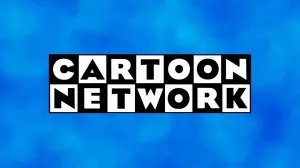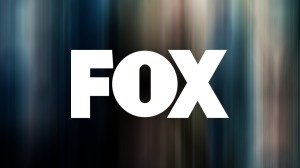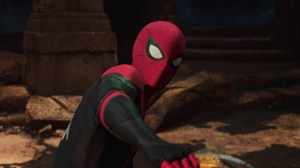
The Boys will make its television (or at least Amazon Prime) debut in less than one week, and a lot of attention is being paid to this new superhero series at San Diego Comic Con. That shouldn’t be a surprise for any readers who enjoyed the series when it was being published by Dynamite or in collected editions over the past decade. This brutal satire captured the dark humor and cynicism that infuse much of writer Garth Ennis’ work, while also allowing artist Darick Robertson (and later collaborators) to deliver plenty of visceral details. It was certainly raunchy and sometimes stomach churning, but always delivered lots of comedy and action.
Videos by ComicBook.com
The Amazon series also appears to be well-situated for success. The development team of Eric Kripke, Seth Rogen, and Evan Goldberg have successfully adapted a variety of superhero and other genre fare for television, including another Ennis co-creation Preacher. The casting of Karl Urban as Billy Butcher and appearances by Simon Pegg also lend the series some street cred, in addition to some amusing trailers. However, no matter how good The Boys may look in 2019, it’s the sort of story that needed to wait until 2019 to be much good. Just like its foundation in comics, The Boys is part of a much larger conversation about superheroes and has found the right moment to introduce itself to a television audience.

Introducing The Boys to Comics
Before discussing the placement of The Boys as a television series, it’s worth looking back to how the comic was published. The Boys #1 premiered under the Wildstorm imprint in 2006, a now defunct branch of DC Comics. Given the talent involved, both Ennis and Robertson had produced hit series for DC Comics before, the series placement at a major publisher wasn’t surprising. However, DC Comics didn’t quite possess the stomach for what this particular story entailed. The Boys is a series that really loathes the concept of superheroes, portraying the vast majority of its powered characters as awful human beings. The worst are mass murderers and rapists, while even the best are typically violent, perverted criminals. This made the DC powers-that-be nervous and the series was cancelled with issue #6.
However, rather than attempt to stop Ennis and Robertson, an arrangement was made that would allow rights to quickly revert to the co-creators and for the series to be continued elsewhere. The Boys began publication at Dynamite Entertainment, which also supported multiple mini-series and has kept the complete 72 issue run in various forms of print since its publication. The series ultimately sold well and has created a fanbase amongst comics, but needed an audience very familiar with superheroes in order to do that.
Most of the stories in The Boys homage popular superhero properties from Marvel and DC Comics, sometimes emphasizing a specific team like the X-Men and other times going broader to mock the concept of teenage superheroes, generally. It’s this sort of understanding that both made DC editorial uncomfortable and developed a strong readership for the series. Appreciating The Boys requires a familiarity with the superhero genre, as every story critiques some element of that genre. There’s no guarantee that knowing what The Boys is talking about will make an audience enjoy it more, but it is a necessary requirement for enjoying The Boys.

The 21st Century Superhero Surge
When The Boys first appeared on comics retailers shelves, superhero movies were a rare treat. Spider-Man 2 and Batman Begins has only just arrived and neither trilogy had disappointed audiences with their third installments yet. You could expect an average television audience member to know who Superman, Batman, and Spider-Man were based on various film and television adaptations, but very few other superheroes had broken through. Wonder Woman and Iron Man might be vaguely recognizable, but their origins, powers, and tropes were far from common knowledge. The superhero genre was still a niche primarily associated with entertaining children and adolescents. Not only were most individual characters hardly known, but the big tropes of superhero comics that fan might enjoy being critiqued (e.g. crossovers and resurrections) were only a part of the comics fare at that time. The Boys worked in comics because there were a lot of superhero comics, but the age of the superhero movie (and television series) was only just beginning to dawn.
Almost 15 years later, knowledge of Marvel Comics has become widespread. More than 20 movies set in a shared universe has made the concept and tropes of a shared superhero universe common. DC Comics’ lore has also received a similar boost, albeit with less fanfare and consistency. However, most moviegoers will at least be able to describe Shazam and Aquaman beyond a single joke. The superhero is a dominant cultural force in 2019, a juggernaut at the box office and omnipresent in popular culture. That has made the specific, somewhat rare knowledge The Boys was based upon a suddenly familiar conversation.

Ample Grist for the Satire Mill
While we don’t know exactly how close to its source material the Amazon adaptation of The Boys will hew, the success of Marvel Studios and subsequent proliferation of so much additional superhero fare has provided the perfect foundation for the series to launch. Whether it decides to focus primarily on comedy or present a greater critique of the genre, like the original series, it can rely on its audience understanding where its jokes and commentary originate. If you have any skepticism about that requirement, just imagine someone watching The Daily Show or Last Week Tonight with no background knowledge about American politics; it simply wouldn’t work.
The Boys also has an opportunity to expand its satirical sights to the entertainment industry itself. The original series emphasized the often arcane lore and specialized nature of superhero comics as a punchline, but superhero movies are now a very profitable, very popular source of entertainment. Rather than repeating the same jokes from the comics, the television series can examine how superhero movies are made and received, in addition to what problems the stories themselves possess.
This is why The Boys seems a likely success in 2019. It is no longer a very specific show that would appear to be addressing a handful of movies about Batman and Spider-Man. Instead, it is a response to something that almost everyone with access to the cinema is now very familiar with, just as the comic book responded to something everyone in comic book stores knew all too well. Satire is only as useful as it can be understood and there’s little doubt that we will all understand what The Boys is about, like it or not.








